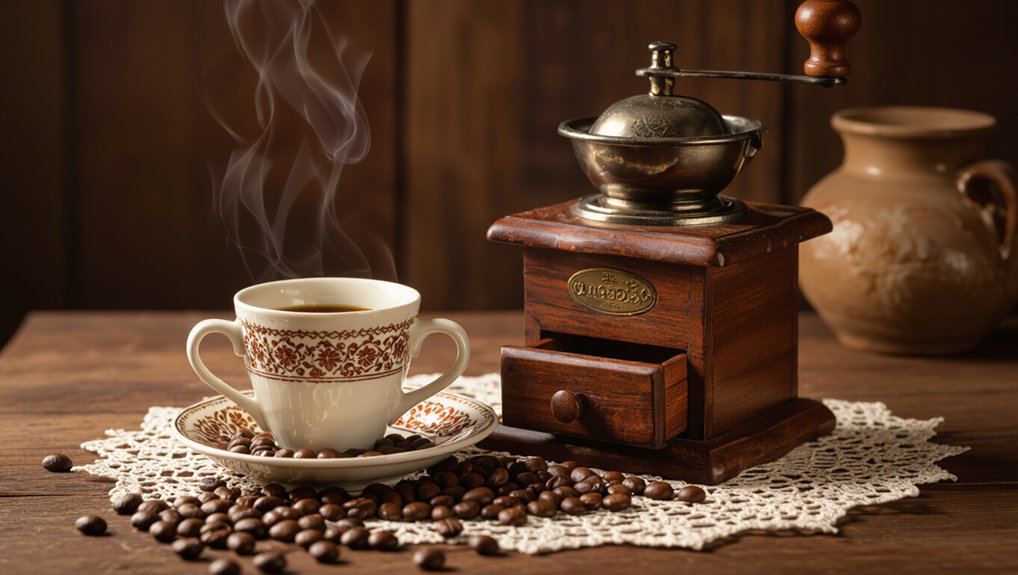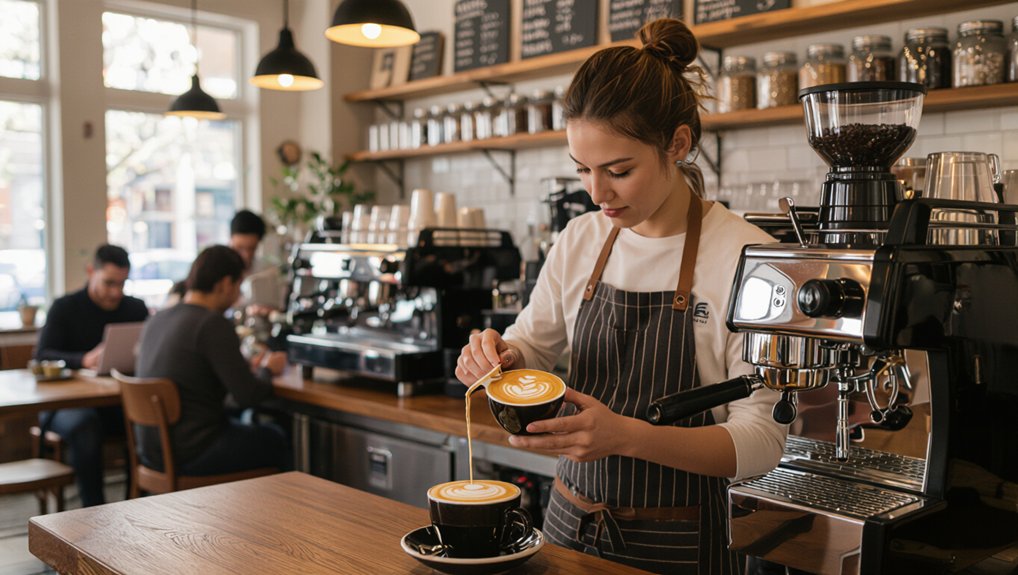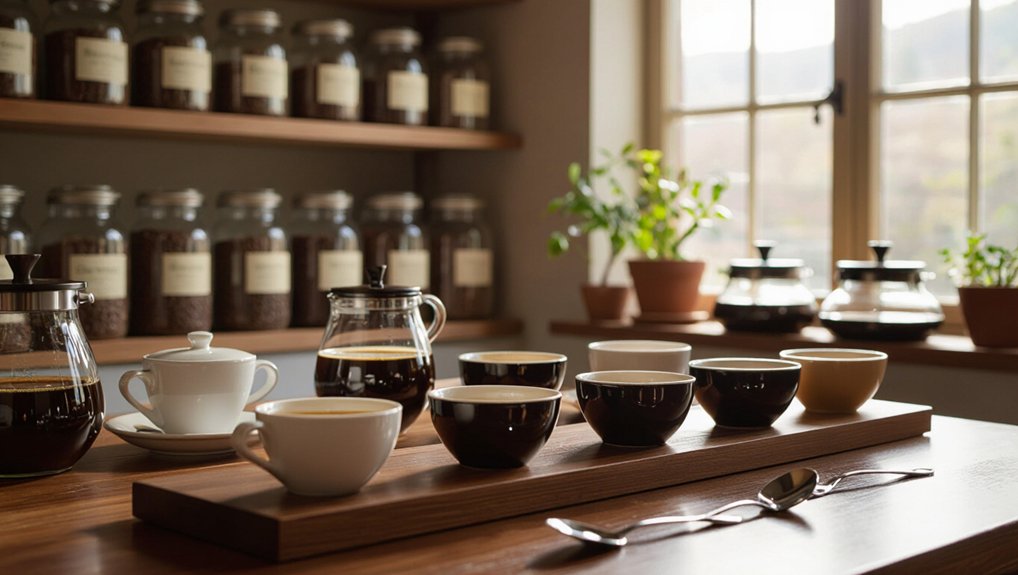Ever wondered why Portuguese coffee tastes so distinct from other European brews? Many coffee enthusiasts struggle to understand what sets Portuguese coffee apart from Italian espresso or French café culture. The answer lies in centuries of colonial history, unique roasting techniques, and brewing methods that have evolved into something entirely their own.
Portuguese coffee culture runs deeper than most people realize. From the robust galão served in ceramic cups to the concentrated bica that rivals any Italian espresso, Portugal has developed a coffee tradition that reflects both its maritime heritage and modern innovations. The country’s historical connection to Brazilian coffee plantations created a foundation for expertise that continues to influence how Portuguese cafés source, roast, and serve their beans today.
In this post, you’ll discover the fascinating history behind Portuguese coffee, explore the most popular varieties you should try, and learn the authentic brewing techniques that will help you recreate these distinctive flavors at home. Whether you’re planning a trip to Portugal or simply want to expand your coffee knowledge, understanding these aromatic traditions will transform how you think about your daily cup.
The Colonial Roots of Portuguese Coffee

Although coffee wasn’t native to Portugal, the country’s colonial expansion dramatically transformed its coffee landscape.
Sergeant Major Francisco de Melo Palheta smuggled coffee plants from French Guiana to Brazil in 1727, kickstarting a rich colonial coffee history.
Portuguese colonialism established massive coffee plantations, particularly in Angola, which became a global coffee powerhouse.
The predominant Robusta beans delivered strong, bitter flavors that characterized Portuguese coffee.
These colonial trade routes birthed vibrant cafés in Lisbon and Porto, turning coffee into more than a beverage—it became a cultural experience that reflected Portugal’s global interactions and imperial reach.
From Robusta to Arabica: A Journey of Taste

When you dive into Portuguese coffee culture, you’ll discover a fascinating evolution from Robusta’s bold dominance to a more nuanced Arabica appreciation. Portuguese colonists developed rich coffee blends that transformed the coffee industry, shifting from strong Robusta shots to more balanced flavors.
| Bean Type | Characteristics | Flavor Profile |
|---|---|---|
| Robusta | Bold, Bitter | Strong, Intense |
| Arabica | Sweet, Complex | Smooth, Nuanced |
| Blend | Balanced | Rich, Layered |
Today’s Portuguese coffee shops embrace medium roasts and espresso topped with a sophisticated crema, reflecting a journey from traditional intense brews to a more refined coffee experience that honors both heritage and innovation.
Essential Portuguese Coffee Varieties

If you’re eager to explore the vibrant world of Portuguese coffee, you’ll discover a rich tapestry of flavors and traditions that go far beyond a simple espresso.
The beloved Bica stands as the national favorite—a potent shot that anchors Portuguese coffee culture.
From the creamy Galão with its generous milk to the delicate Café Pingado, each variety tells a unique story.
Coffee lovers can enjoy Garoto for a milder experience, cool down with a zesty Café Mazagran, or savor an Abatanado for a longer, gentler brew.
These coffee varieties showcase Portugal’s deep-rooted coffee passion.
Mastering the Art of Ordering Coffee in Portugal

After exploring Portugal’s diverse coffee varieties, you’ll want to know how to confidently order your perfect cup.
When navigating Portuguese coffee culture, start with “um café” – the default espresso. In Lisbon, ask for a “bica,” while Porto locals use “cimbalino.”
Coffee drinkers can customize their experience by specifying preferences like “café pingado” (espresso with a milk splash) or “galão” (espresso with more milk).
Always add “faz favor” when ordering and conclude with “obrigado/obrigada.”
Most cafés serve coffee with sugar, but you can request it without. Regional variations make ordering an adventure in itself.
Café Culture: More Than Just a Beverage

The hearth of Portuguese social life beats strongest in its vibrant cafés, where coffee transcends mere beverage status to become a cultural ritual.
In Lisbon and Porto, coffee drinking rituals unite locals, transforming leisurely coffee experiences into community connections. Portuguese espresso isn’t just a drink—it’s a social language spoken in cafés where intellectuals, artists, and everyday people converge.
The Portuguese Coffee Association champions this rich café culture, celebrating how coffee companies craft more than beverages; they create spaces for connection.
Whether standing at a bar or seated at a table, you’ll discover coffee’s profound role in Portuguese identity.
Brewing Techniques and Traditions

Dive into the rich world of Portuguese brewing techniques, where three generations of coffee mastery converge in every carefully crafted cup.
The balâo de café method exemplifies this tradition, slowly brewing coffee to enhance its flavor profile. Dark-roasted Robusta beans, with their robust character, form the foundation of Portuguese coffee.
Skilled baristas meticulously manage the roasting process, achieving a 20% weight loss that intensifies the beans’ cultural heritage.
Traditional brewing methods aren’t just techniques—they’re a testament to Portugal’s deep coffee passion, transforming each cup into a sensory journey that celebrates generations of coffee preparation.
Frequently Asked Questions
What Health Benefits Does Portuguese Coffee Offer?
I’ll boost your antioxidants and lower your disease risks with Portuguese coffee. It’s packed with nutrients that can improve mental alertness, potentially reduce diabetes risk, and support heart health when consumed in moderation.
How Much Caffeine Is in a Typical Portuguese Espresso?
I’ll tell you that a typical Portuguese espresso contains about 60-80 milligrams of caffeine, which is standard for a single shot. It’s a potent little brew that’ll give you a quick, energizing boost without overwhelming your system.
Can I Find Portuguese Coffee Brands Internationally?
Yes, I can help! International specialty coffee shops and online retailers like Amazon often stock Portuguese coffee brands such as Delta, Nicola, and Sagres. You’ll find these delicious options more accessible than you might expect.
Are There Regional Differences in Portuguese Coffee Preparation?
I’ve traveled across Portugal and noticed distinct regional coffee styles. In the north, they prefer stronger espresso, while the south tends to enjoy milder, smoother brews. Each region has its unique preparation method and coffee culture.
What Food Pairings Complement Portuguese Coffee Best?
I’ll suggest some delicious pairings! Pastel de nata, our iconic custard tart, perfectly complements the rich coffee flavors. Almond cookies and traditional Maria biscuits also create a delightful balance with the robust Portuguese espresso.
In Conclusion
Portuguese coffee isn’t just a drink—it’s a cultural journey that’ll transform your comprehension of brewing. From colonial plantations to modern cafés, I’ve explored the nuanced world of Portuguese coffee traditions. Whether you’re sipping a Bica in Lisbon or experimenting with Balâo brewing at home, you’ll discover a rich tapestry of flavor, history, and passion. Embrace the art, savor the complexity, and let Portugal’s coffee heritage inspire your next brewing adventure.






